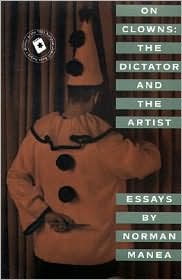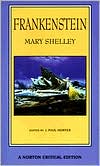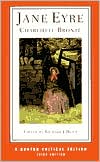On Clowns: The Dictator and the Artist
The overthrow of Nicolae Ceausescu revealed to the world a regime whose grim despotism was so powerful and pervasive that it almost defies comprehension. For Norman Manea, who left Romania in 1986, the terror the regime imposed on its citizens was matched, on another level, by the irrevocable choices it forced upon its artists. In On Clowns: The Dictator and the Artist, Manea explores the realm of pain, anger and fear that confronts the creative mind in a tyranny. Patiently, carefully, and...
Search in google:
Survivor of the Nazi camps and Ceausescu's Romania, winner of the National Book Award, recipient of a MacArthur Award and a Guggenheim Fellowship, Norman Manea, an extraordinary man of letters, "gives us a taste of something beyond the scope of even our twentieth-century imagination. . . . Manea is too profound a witness to place his gift for observation in the service of another sensualist account. . . . What matters for him is the phenomenon of an entire nation's life under this simultaneously grotesque and terrifying rule." -- The New RepublicPublishers WeeklyManea, who emigrated to the West in 1986, portrays life under Nicolae Ceausescu's dictatorship in Romania as a ``sinister carnival,'' a nightmarish Fellini movie. The country, governed by the dictator and his police ``like a penal colony,'' was nevertheless not totally monolithic, but instead full of ``ambiguity and duplicity, masks and falsehood.'' These elegant, outspoken essays explore the relationship between the writer, the state bureaucracy with its treacherous censorship and the ``not-so-innocent masses'' who accommodated themselves to lies and repression. Life was a state of permanent suspension, of cunning and silence, for the person with integrity and for the creative artist. Manea offers an intriguing expose of Mircea Eliade, historian of religion, as fascist sympathizer and right-wing ideologue. He names names in an autopsy of Ceausescu's ``hit squad,'' the special guard that enforced cultural conformity through denunciation of ``foreigners,'' ``liberals'' and ``European types.'' (Feb.)
Author's NoteRomania: Three Lines With Commentary3On Clowns: The Dictator and the Artist: Notes to a Text by Fellini33Censor's Report: With Explanatory Notes by the Censored Author63Felix Culpa91The History of an Interview125
\ Publishers Weekly - Publisher's Weekly\ Manea, who emigrated to the West in 1986, portrays life under Nicolae Ceausescu's dictatorship in Romania as a ``sinister carnival,'' a nightmarish Fellini movie. The country, governed by the dictator and his police ``like a penal colony,'' was nevertheless not totally monolithic, but instead full of ``ambiguity and duplicity, masks and falsehood.'' These elegant, outspoken essays explore the relationship between the writer, the state bureaucracy with its treacherous censorship and the ``not-so-innocent masses'' who accommodated themselves to lies and repression. Life was a state of permanent suspension, of cunning and silence, for the person with integrity and for the creative artist. Manea offers an intriguing expose of Mircea Eliade, historian of religion, as fascist sympathizer and right-wing ideologue. He names names in an autopsy of Ceausescu's ``hit squad,'' the special guard that enforced cultural conformity through denunciation of ``foreigners,'' ``liberals'' and ``European types.'' (Feb.)\ \ \ \ \ Library JournalThese riveting essays provide us with a fascinating look at Romanian life under the tyranny of Ceausescu. Manea's struggle to retain his humanity and artistic integrity is an emotionally powerful story. Both Manea's personal and professional life were subject to unthinkable oppression that is made all too real by his vivid prose. How could he retain any integrity as a writer in an environment so pervasively despotic? Manea's answer will fascinate literary critics. One of the essays reprints the full text of a Romanian censor's report on Manea's novel, The Black Envelope . The twisted thinking in this report makes the struggle appallingly clear. Manea's observations on our own society are equally thought-provoking. The translation is smoothly readable and the notes fill in the gaps for the casual reader. This work will appeal to all readers, deserves a wide audience, and belongs in all libraries.-- Ruth M. Ross, Olympic Coll. Lib., Bremerton, Wash.\ \








